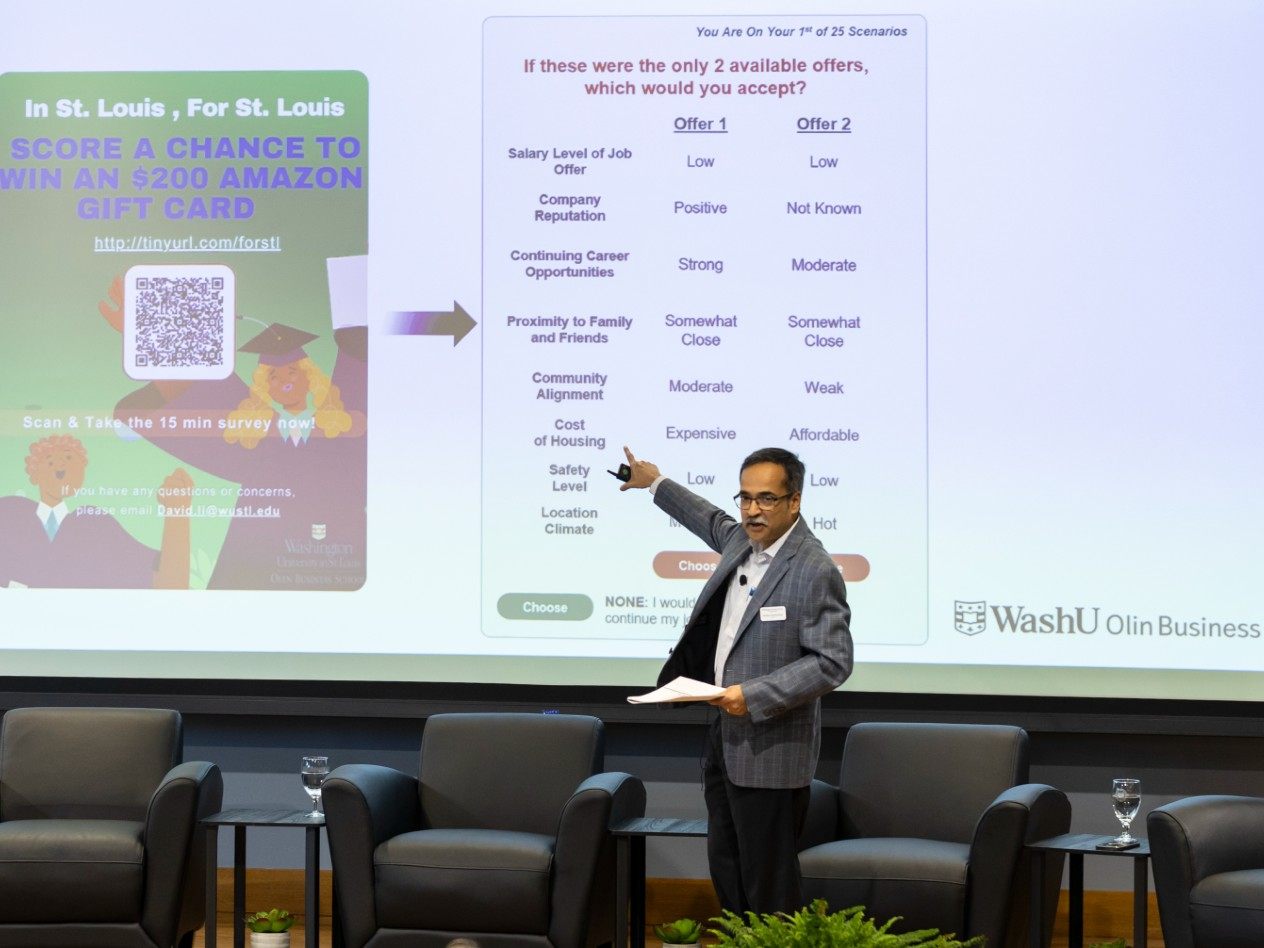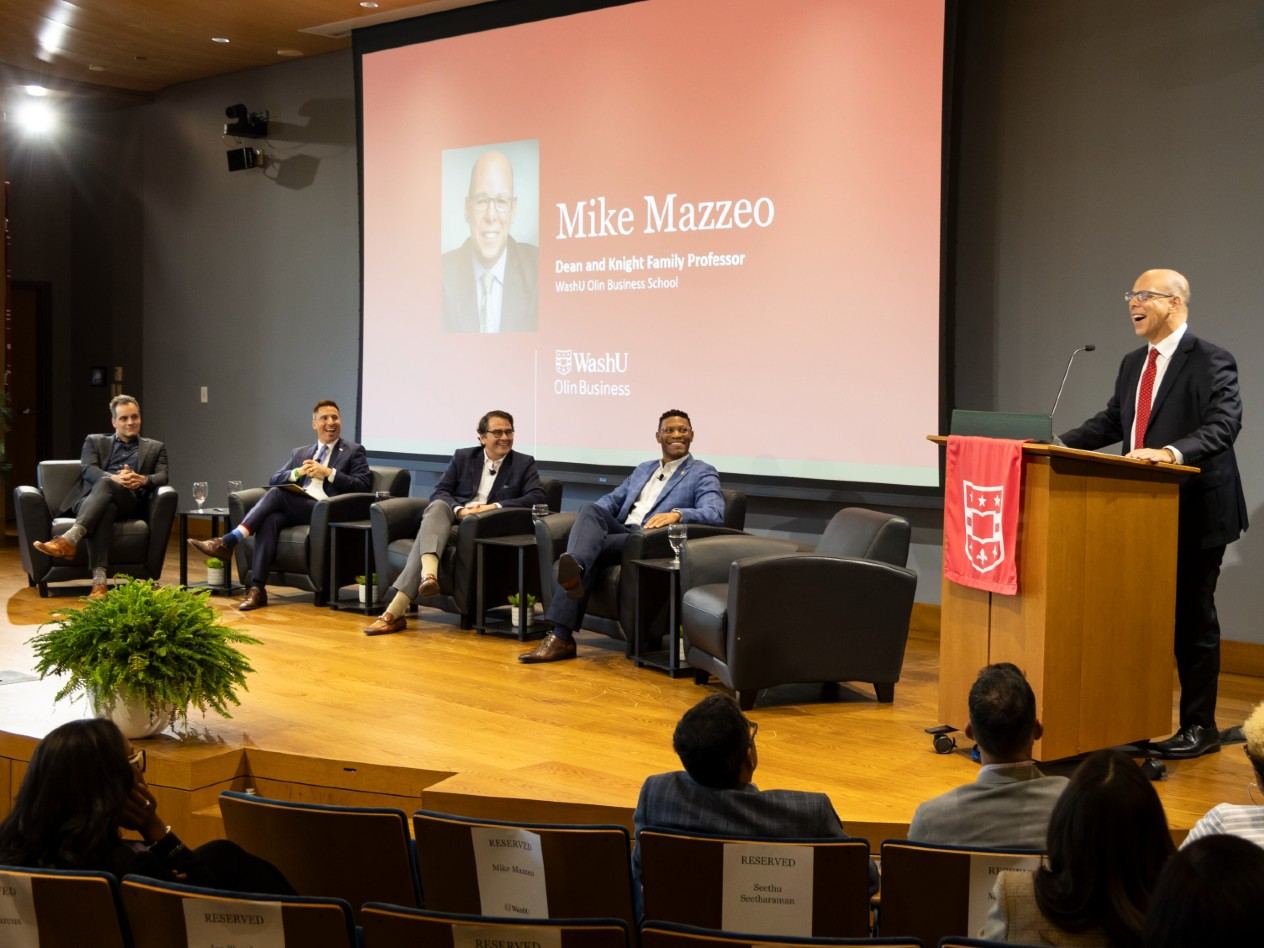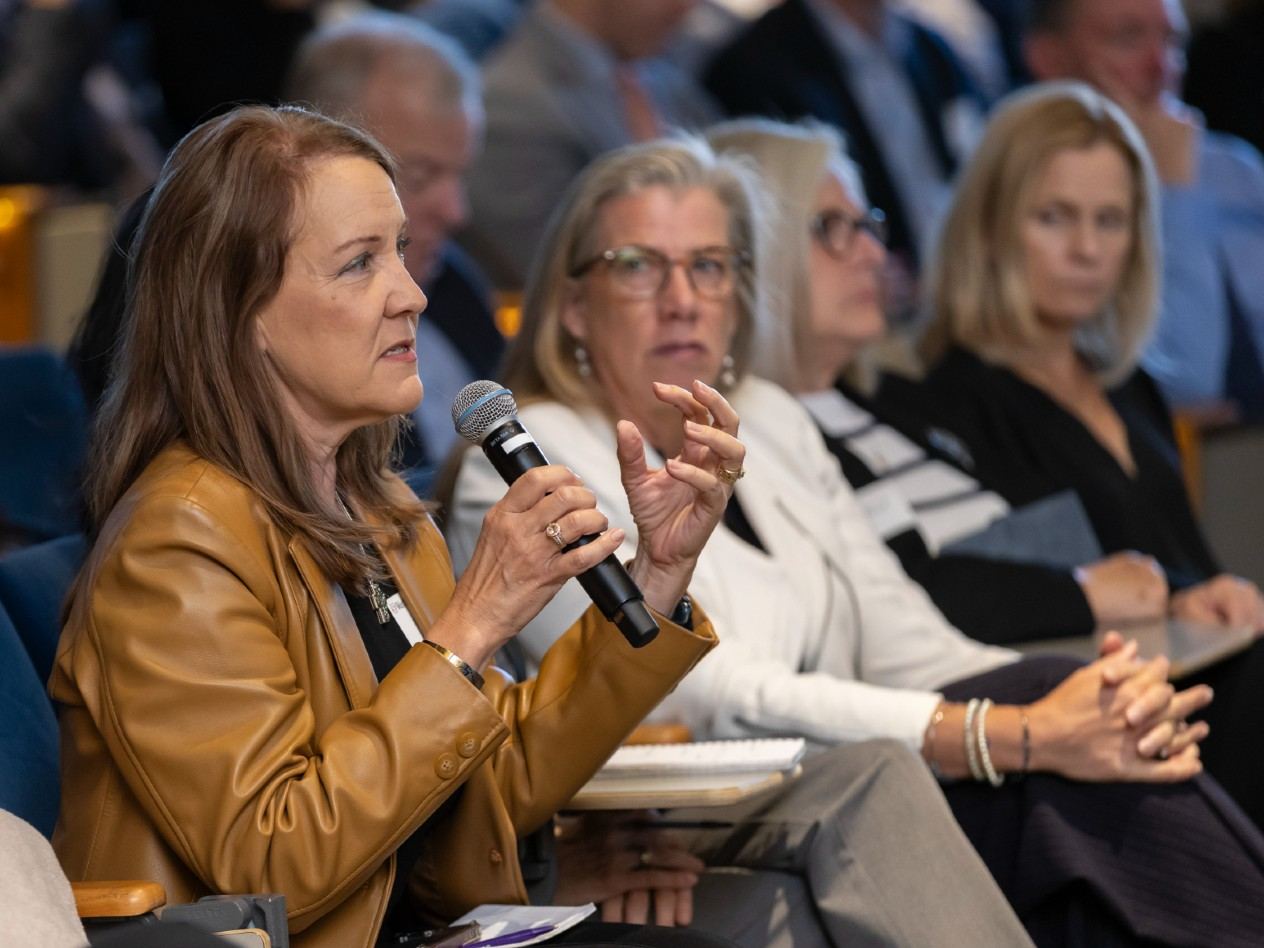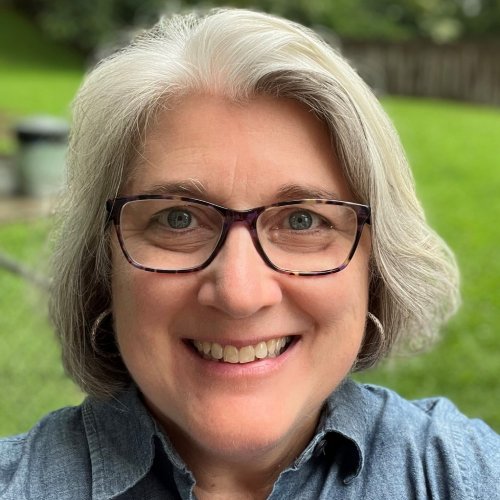Olin experts, regional leaders discuss how to retain graduate talent in St. Louis
- October 23, 2024
- By Suzanne Koziatek
- 4 minute read

WashU Olin is leading the conversation around how to keep the brightest students from St. Louis-area colleges in the region after they graduate.
Olin’s Center for Business Analytics and Insights (CABI) recently convened leaders from industry, the nonprofit world, government, and academia to talk about students’ relocation decisions after college.
They discussed the results of CABI’s report: “In St. Louis for St. Louis: A Data-Driven Approach For Attracting & Retaining Talent.” The project was commissioned by WashU’s St. Louis Initiatives office and carried out by a team of specialized master’s and MBA students under the direction of Olin faculty. Its goal was to determine the most important considerations for WashU’s students as they chose where to work after graduating.
“When we cultivate a robust talent ecosystem, we don't just benefit individual businesses or institutions—we uplift entire communities,” said WashU Chancellor Andrew D. Martin in his introduction to the October 9 event. “We spark innovation, drive economic growth, and create opportunities that ripple out to touch every corner of our city and region.”
Working with student focus groups, the CABI team identified factors that affected their relocation deliberations—job factors such as salary, advancement opportunities, and company reputation, as well as personal factors such as proximity to family and friends, cost of living, safety, and climate.
Then, they presented students with multiple pairs of hypothetical job offers, varying the details to see how students prioritized different factors. The results varied by type of student (undergraduate or graduate) and by major, but generally, salary was seen as most important, with proximity to loved ones and the perceived safety of the city as strong secondary concerns.
Michael Wall, co-director of CABI and a professor of practice, marketing, and entrepreneurship at Olin, said that by building a decision tool from this data, it’s possible to predict student decisions, given a fresh set of choices. By adjusting those choices (say, raising a salary or improving perceptions of a city’s safety), you can see the degree to which it changes decisions.
“This tool that we built, the data that it collects, enables us to move past it,” Wall said. “We actually have it as a resource that we can use in our community to make better decisions.”
That decision-making was the focus of the rest of the CABI presentation, as Olin brought together regional stakeholders to discuss takeaways from the research and ideas for carrying it forward:
Making a great impression
Panelists said one key to retaining students post-graduation is ensuring they have a positive experience during their time in St. Louis—including exposing them to opportunities to work with local businesses.
Melissa Mayer, global human resources director for New Balance, described her company’s collaborations with WashU and Olin through experiential learning projects that introduce students to the type of work they can find here. “We’re really cultivating those relationships with students and being intentional about wanting to bring them into our environment.”
Building on St. Louis’ strengths
Creating inviting job opportunities doesn’t require reinventing the wheel, panelists noted. Existing foundations in areas such as life sciences, geospatial intelligence, and the health industry, can be strengthened through new partnerships.
One example is the production of advanced pharmaceutical ingredients, or APIs. Missouri already leads the nation in this area and Tony Sardella, CABI’s senior research advisor, is intent on building on that promising start. He founded the API Innovation Center, which is working to reshore hundreds of essential pharmaceuticals in Missouri—creating well-paid jobs in the process.
Collaboration over competition
Attracting and retaining graduates requires cooperation, even among institutions and businesses that might ordinarily compete. Missouri state Sen. Brian Williams encouraged the attendees to keep the conversation going after this conference.
“If you're working on something that we all want to be a part of, we want to learn about it,” he said. “We want to invest in it. A lot of folks that I see around here are doing great things. Let's make sure we're talking to each other.”
In his closing remarks, Olin Dean Mike Mazzeo said WashU and Olin are committed to help accelerate that process of discovery and collaboration, through research and through events such as this one.
“I feel strongly that we have both the honor and the responsibility to convene groups like this with leaders like these, to think about how we can address the challenges and leverage the opportunities of our region,” Mazzeo said.
He noted that one of the pillars of Olin’s new strategic plan is building and growing regional partnerships.
We’re going to be out there reaching out like never before. We want to be the business school that is in St. Louis and for St. Louis. And that means partnerships—understanding what the business community needs and really connecting with you.
—Mike Mazzeo
Photo: Professor Seethu Seetharaman explains how a team from the Center for Analytics and Business Insights surveyed WashU students regarding their post-graduation job decisions.
Data for Good
WashU Olin hosted regional stakeholders to discuss how to retain college students in St. Louis.


Media inquiries
For assistance with media inquiries and to find faculty experts, please contact Washington University Marketing & Communications.
Monday–Friday, 8:30 to 5 p.m.
Sara Savat
Senior News Director, Business and Social Sciences
